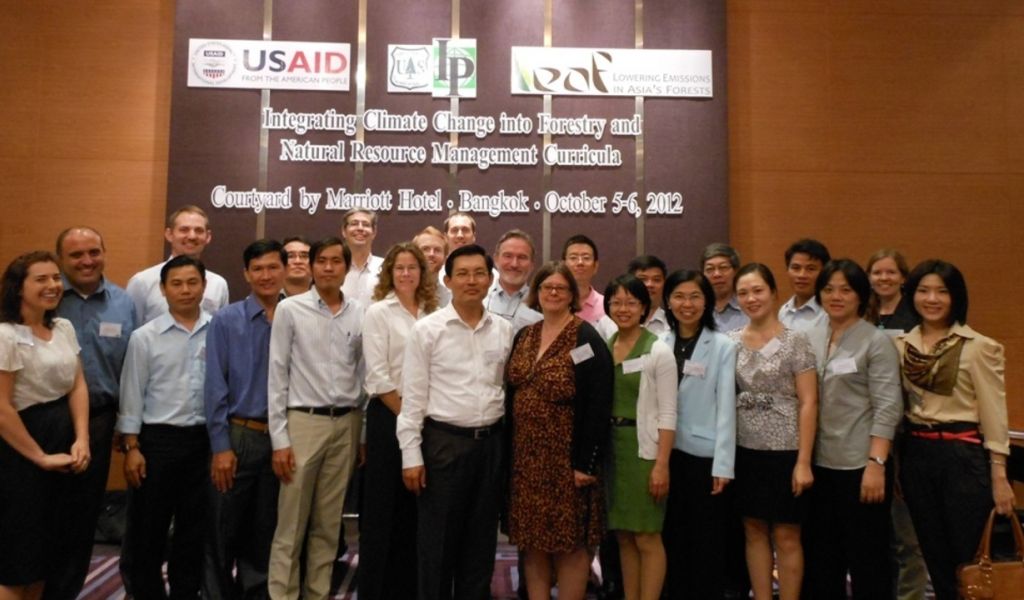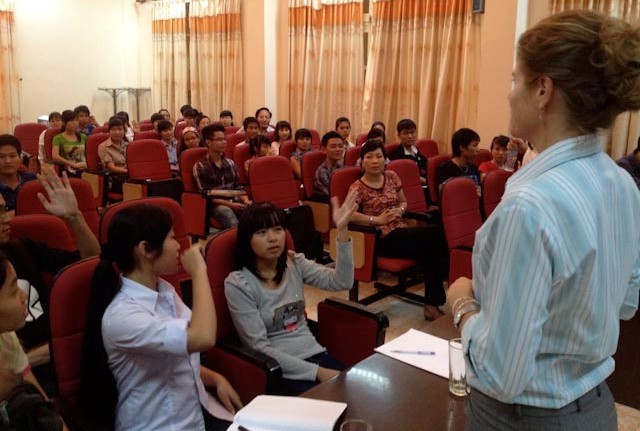Climate change curriculum prepares the next generation of climate change experts

Educating the next generation of natural resource professionals and policymakers in climate change is an investment in the future, especially in the Asia-Pacific.
The Asia-Pacific is one of the most vulnerable to climate change impacts, but it also has a promising future for climate change mitigation efforts through reducing deforestation and forest degradation. This thinking inspired the Regional Climate Change Curriculum Development Project, implemented from 2012-2015 by the USAID-funded Lowering Emissions in Asia’s Forests (LEAF) project in partnership with the United States Forest Service (USFS).
Over the course of three years, LEAF and USFS worked with professors from 12 universities in six Asian countries, including Vietnam, Thailand, Cambodia, Laos, Malaysia, and Papua New Guinea, and with three U.S institutions. The project brought together 56 professors and climate change experts.
LEAF and USFS launched the program by hosting a workshop and needs assessment with their Asian partners. The group prioritized curriculum topics and decided to develop four modules in the regional climate change curriculum: Basic climate change, Social and environmental soundness, Land use planning and climate change, and Carbon measurement and monitoring.
These partners then developed, tested, and revised the regional climate change curriculum. It was the first of its kind in Southeast Asia.
“Developing these materials with professors and instructors from so many different universities has enriched climate change education in Laos,” said Somvang Phimmavong, a professor from the National University of Laos.

LEAF and USFS released the materials in 2014 and 2015 through a series of regional and country trainings. The trainings introduced the materials, gave teaching demos, applied active learning techniques, and provided opportunities for exchanging ideas.
Seven hundred professors from 63 universities participated in the curriculum trainings. Now, these professors instruct over 30,000 undergraduate students and 700 graduate students across the Asia-Pacific region every year.
Students have responded enthusiastically to the materials.
“When I introduced these new materials at the university, it was fantastic,” said Freddie Alei, a professor from the University of Papua New Guinea. “Everybody started attending the course, and they really liked it because the materials were updated.”
While the LEAF project has ended, the curriculum continues to be used and adapted. The Center for People and Forests (RECOFTC), a regional organization that promotes sustainable forest management across the Asia-Pacific Region, hosts the complete curriculum online.
The people involved in creating the curriculum have also formed a community of practice and communicate regularly through a moderated Google Group. Given the significance of climate change for the Asia-Pacific region, this network of professors and experts invested in teaching climate change is making an invaluable contribution to future generations.


